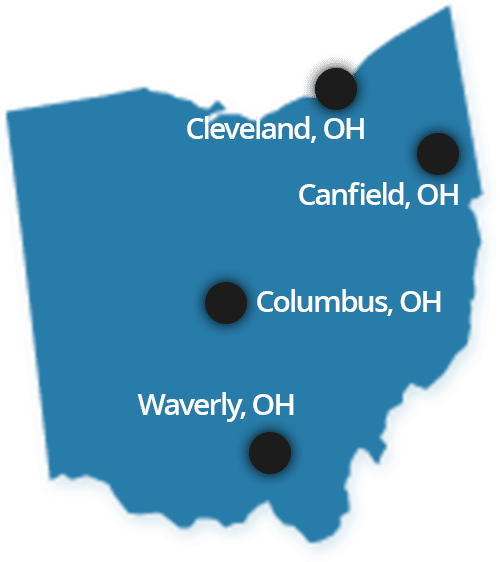You probably know that workers’ compensation is the usual source of compensation when you’ve been injured on the job. And you may have heard that workers’ compensation in Ohio is an exclusive remedy, meaning that you typically can’t sue your employer for your injuries, even if they were negligent. But you may not know that in certain situations, you may be able to pursue additional compensation from someone other than your employer.

How is Workers’ Compensation Different from a Personal Injury Claim?
The Ohio workers’ compensation system is designed to make it simpler to get benefits when you’ve been injured at work, and to ensure that you have a source of medical coverage and replacement income even if no one else was to blame for your injury–in most cases, even if the injury was your own fault.
But that comes with a trade-off.
In a personal injury case or product liability case, you may be able to secure compensation for non-economic losses, such as loss of enjoyment of life and pain and suffering. Workers’ compensation benefits are more limited and are intended only to cover medical care and lost income.
That includes long-term loss of income if you are unable to return to work or are partially disabled. But workers’ compensation awards are typically lower than you might expect in a similar personal injury case.
Filing a Personal Injury Claim in Addition to a Workers’ Compensation Claim
In Ohio, you generally can’t file a personal injury claim against your employer, with or without a workers’ compensation claim. There’s an exception to this rule for intentional torts—when the employer acted with intent to injure—but it’s very limited. For some injured workers, there’s a third option. An outsider may be wholly or partly responsible for the injury.
Here are some examples of situations in which an injured worker might have both a workers’ compensation claim and a personal injury or product liability claim:
- A construction worker leaves a job site in the middle of the day in a company vehicle to pick up supplies for the job. On the way back from the hardware store, the worker collides with another vehicle that ran a red light, sustaining serious injuries. The construction worker would typically be entitled to workers’ compensation benefits, since the injury occurred in the course of employment. But he might also have a personal injury claim against the negligent driver who ran the red light and hit him.
- An employee (not contractor) of a shopping service goes to the local grocery store to pick up items ordered by a customer. While the employee is shopping in the produce section, she slips on a wet floor and suffers a head injury. The floor was wet because the misting system that keeps the produce fresh was not set up properly, and continuously sprayed water on the floor. The employee would generally be entitled to workers’ compensation benefits through the shopping service she works for. But she might also have a personal injury claim against the store that failed to keep the premises safe for shoppers.
Coordinating Workers’ Comp with Other Claims
The process for pursuing a workers’ compensation claim and the process for pursuing a personal injury or product liability claim are completely separate. However, one claim can impact the other. That’s because an injured worker is generally not allowed to collect the same compensation twice. For example, one of the types of damages commonly available in a personal injury case is compensation for medical expenses. But an injured worker whose medical expenses were paid by workers’ compensation can’t also collect those same costs from the responsible party.
The way this actually plays out is complicated and may involve subrogation rights. In simple terms, that means one party taking part of an award paid by another party to pay back benefits it provided. This amount may be negotiable.
Third-Party Claims May Be Limited in Some Circumstances
The immunity that generally prevents an injured worker from suing the employer doesn’t typically extend to third parties. That’s why the construction worker and the shopper in the examples above would typically be entitled to pursue both a workers’ compensation claim and a personal injury claim against the responsible party. But some third parties are protected by the immunity the Ohio workers’ compensation statute confers.
For example, in some construction settings, all contractors on a project enjoy immunity from negligence suits by injured workers, even if the injured worker is employed by a different contractor.
Work With an Experienced Work Injury Attorney
The relationship between workers’ compensation and other possible claims, such as personal injury or product liability, can be complicated. A law firm that handles only one type of claim or the other may not be entirely familiar with the options available to the injured worker. It’s also important that the attorney or attorneys involved in related workers’ compensation and personal injury claims understand the subrogation issues involved and how to coordinate the cases to maximize the compensation available to the injured worker.
If you’ve been seriously injured on the job, you can schedule a free consultation right now by calling 855-4PLEVIN. Plevin & Gallucci has extensive experience with both types of work injury claims and managing multiple claims in connection with the same injury.

